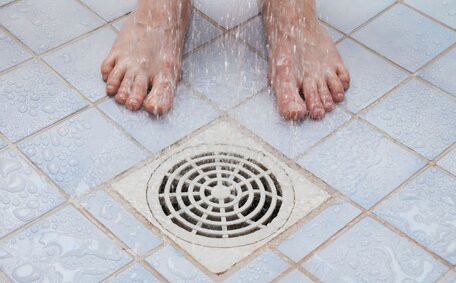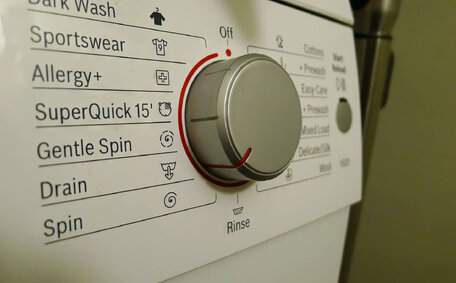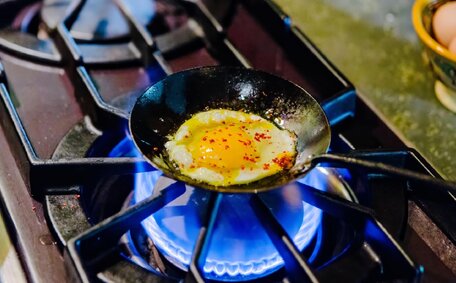
Baking Soda & Vinegar for Cleaning
Using baking soda & vinegar separately for cleaning is very effective; but mixing them dilutes their cleaning power. Learn how to use them properly.
Read MoreIt’s crucial to know your family’s hot water usage patterns to pick an appropriate water heater. Factors like the number of occupants, peak usage times, and average daily hot water needs can help determine the right size and type of system for your home.
Small households might suffice with an efficient instant hot water system or compact storage tank, whereas larger families may need a robust storage or continuous flow system to meet their demand for hot water.
Pay attention to times when multiple showers, washing machines, dishwashers etc. may be used at once to understand your peak demand.
Monitoring energy bills and usage can offer insights into the appropriately sized system for your household’s hot water demands. A correctly sized hot water system ensures maximum efficiency and cost savings.
Several types of water heaters are available for homes:
Storage water heaters keep ready-to-use hot water in a tank. They include:
Continuous flow systems deliver hot water instantly by heating it only when needed. Options include:
Comparing the pros, cons, costs, and features can help in choosing right hot water system for your household.
Gas hot water systems use a gas burner to heat water stored in an insulated tank. Natural gas is channeled straight to the system, efficiently powering your hot water needs. Gas hot water systems confer multiple benefits:
As Lilyfield, Sydney has access to mains natural gas lines, these systems are a popular choice. The initial higher cost for installing gas systems is balanced by reduced ongoing water heating expenses. Maintenance is also minimal - just ensuring correct water pressure and getting the unit serviced every 3-5 years.
Disadvantages of gas storage units include variable gas prices, carbon emissions during use, and space needed for the tanks. For Sydney homes with a gas connection, a well-sized gas-electric water heater frequently offers the best value.
Electric hot water systems use electric heating elements to heat water stored in an insulated tank. Electric water heaters are less expensive initially than gas models but have higher ongoing energy costs. Key features include:
An electric hot water system suits smaller households with lower demands for hot water. When it comes to usability, a properly sized unit avoids wasted standby heating for unused capacity. Heat pump electric units can lower operating costs and act as an energy saver through their increased efficiency.
New smart hot water systems can have timers, wifi control, and technology for more energy-efficient heating, saving more energy than older tanks. Still, in the long run, electric hot water is less efficient and costlier than gas in the Sydney region.
Solar heat pump hot water systems harness solar energy through panels on your roof, offering an eco-friendly way to reduce hot water costs. They work by using solar thermal panels, usually installed on your roof, to preheat water before it enters your home’s regular storage tank system.
Benefits of solar hot water include:
Solar hot water requires full sun exposure and sufficient roof space for multiple panels, which may not suit all homes, though gas-electric boosters can compensate for limited sunshine. Most systems utilise gas solar or electric heating to boost the water temperature when needed, making them hybrid systems, which increases costs slightly.
Upfront system costs start from $5,000 installed but governments provide generous rebates at both federal and state levels to make purchasing more affordable. Typically paying for themselves in 5-7 years through energy savings, solar hot water systems provide a solid return on investment and environmental benefits.
A heat pump hot water system can be a cost-effective and energy-efficient choice for your Sydney home over its lifespan. They work by extracting ambient heat from the air and using it to heat the water system your home uses, storing it in an insulated tank.
Benefits of heat pump systems include:
The only requirements are an outdoor space for the heat pump unit and single phase power suitable for the system your home will use. Installation costs start from $5,000 but governments provide generous rebates to help with affordability. Heat pumps work optimally in temperate and warm climates like Sydney, making them an ideal choice where solar hot water isn’t practical.
Heat pumps offer significant financial and environmental benefits for Central Coast homeowners upgrading from older electric or gas models.
The main factors to consider when comparing the efficiency and operating costs of hot water systems are:
System efficiency is measured by the Coefficient of Performance (COP), the ratio of energy input to heat output. The higher the COP, the more efficient the system:
Estimated yearly operating costs for hot water systems in the Lilyfield area are:
Solar hot water is often the most efficient choice, providing the greatest efficiency and lowest operating costs. Heat pumps also perform well at a moderate price. Gas systems are more energy efficient than electric storage on both metrics.
When choosing a system, weigh the purchase cost against its efficiency and yearly expenses over its lifetime.
Selecting a suitable energy-efficient hot water system is key to maximising rebates and incentives, thus cutting costs:
With initial costs starting from $5,000 for solar hot water systems, claiming all available rebates can lead to substantial upfront savings of up to $2,000. Heat pumps also see worthwhile rebates to offset initial purchase costs.
Choosing the best hot water system eligible for rebates allows Lilyfield homeowners to save on installation expenses. Additionally, lower energy bills ensure continued financial savings over the years. Reach out to us to verify rebate eligibility for your system.
When selecting a new hot water system, it’s crucial to choose the right size hot water system to meet your needs. An oversized system leads to energy and financial waste by heating more water than needed. Conversely, an undersized unit will fail to supply the necessary hot water for daily activities and peak demand periods.
Consider these factors, including the number people in your home, to determine the best size:
Your home’s occupancy affects the kind of water heater required. Allow for 50-80 litres of hot water per person daily as a general estimate for your family. For instance, a four-person family would require at least a 200–300-litre water storage tank.
When it comes to peak times, usually mornings, see simultaneous use of multiple showers, taps, washing machines etc. To manage peak water use, increase your system’s flow rate and capacity by 20-30%.
Whether hot water is used for longer showers once or several shorter showers can impact your system choice. Do you run hot water taps for longer periods? Consider your specific usage habits to right-size your system.
Also consider seasonal variations in occupancy and water needs—greater capacity ensures a consistent supply throughout the year.
Consult with our team to assess your household’s specific needs and select the appropriately sized hot water system. A system tailored to your household ensures efficiency, cost savings, and enough hot water for all uses.
When choosing a new hot water system, key features to consider include:
Comparing different systems’ specifications and features aids in selecting the most suitable option for your home. Balance upfront system expenses against projected operating costs and product lifespans as well. Seeking advice from our experts will help you make the best system choice.
Installing a hot water system can be best left to qualified professionals to ensure correct configuration, safety, and long-term functionality. Our skilled Lilyfield plumbers offer expert installation services tailored to meet your specific system requirements.
It’s also wise to consider the warranty period offered. Extended labour warranties are also available.
Quality systems often come with 5-10 year or longer warranties on key components like storage tanks and heat exchangers. This provides assurance that should problems arise down the track, you’re protected from potentially costly repair bills.
Checking what coverage a warranty provides is also important - some may only cover certain parts. Understanding any service requirements to keep the warranty valid, such as regular maintenance, is also advised. Our team is happy to discuss warranty specifics to give you peace of mind.
Professional installation coupled with a solid warranty from a reputable brand promises years of consistent, efficient, and safe hot water heating. To explore your options or get an installation quote, reach out to Lilyfield Plumbing today.
Using baking soda & vinegar separately for cleaning is very effective; but mixing them dilutes their cleaning power. Learn how to use them properly.
Read MoreBlocked drains are usually caused by buildup of hair, grease, debris and more in your pipes. Fix the problem with professional drain unblocking services to get your drains flowing freely again. Contact us for affordable drain unblocking.
Read MoreWhen you suspect a gas leak or damaged gas line, contact a licensed gas fitter immediately to locate and repair it. A gas line repair involves sealing leaks, replacing corroded or damaged pipes and testing all connections for safety before restoring gas supply.
Read MoreLilyfield, 2040 NSW
We will call back as soon as possible.




